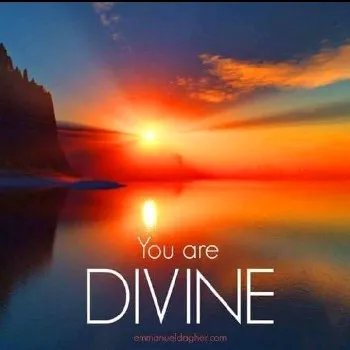Pyramid Structure of Monarch in 21st Century
The idea of a deep state pyramid monarchy influencing the African continent refers to theories suggesting that Africa's political and economic systems are heavily influenced—or controlled—by hidden or external powers. These powers are often depicted as operating in a hierarchical structure akin to a "pyramid," with decision-making concentrated at the top, either within Africa or externally by global elites.
This narrative intertwines neo-colonialism, resource exploitation, and economic dependency to describe Africa’s modern challenges. Below is an exploration of how this concept may relate to the African continent
Historical Context:
1. Colonial Legacies:
The "pyramid" begins with colonial powers (e.g., Britain, France, Belgium) that historically divided Africa for resource extraction and control.
Colonial rulers implemented hierarchical systems where a small elite governed on behalf of European powers.
Borders were arbitrarily drawn, creating divisions that persist as sources of conflict today.
2. Post-Independence Power Structures:
Many African nations gained independence in the mid-20th century, but governance systems often replicated colonial hierarchies.
Newly independent nations were left with centralized power structures that could be easily influenced by external forces.
3. Cold War Influence:
During the Cold War, Africa became a battleground for proxy wars, with Western and Eastern blocs supporting authoritarian leaders who served their interests.
Deep State Pyramid in Africa:
1. External Actors at the Top:
Alleged "deep state" control comes from external powers such as:
Former Colonial Powers (France’s "Francafrique" policy, UK’s Commonwealth ties).
Global Financial Institutions (IMF, World Bank).
Multinational Corporations exploiting Africa’s natural resources.
These actors are seen as pulling strings behind the scenes, shaping policies to maintain influence.
2. Local Elite Partnerships:
At the mid-level of the pyramid, a class of African elites often aligns with external powers to maintain their status and wealth.
These elites control governments, military forces, and economic assets while prioritizing personal enrichment over national development.
Examples include long-serving authoritarian rulers and politically connected business figures.
3. The Broader Population at the Base:
The majority of Africans, often impoverished and excluded from decision-making, represent the foundation of this structure.
This population bears the brunt of systemic inequality, resource exploitation, and political instability.
Mechanisms of Influence:
1. Economic Dependency:
Debt Trap Diplomacy: Many African countries are heavily indebted to global financial institutions or emerging powers like China, which wield significant influence over their policies.
Structural Adjustment Programs (SAPs): Implemented by the IMF and World Bank, these programs often resulted in austerity measures, privatization, and weakened social services.
2. Resource Control:
Africa's wealth in resources—gold, diamonds, oil, rare earth minerals—is a key focus of external powers.
Multinational corporations often exploit these resources with minimal benefit to local populations, perpetuating dependency.
3. Military and Political Manipulation:
Foreign military bases and...
This narrative intertwines neo-colonialism, resource exploitation, and economic dependency to describe Africa’s modern challenges. Below is an exploration of how this concept may relate to the African continent
Historical Context:
1. Colonial Legacies:
The "pyramid" begins with colonial powers (e.g., Britain, France, Belgium) that historically divided Africa for resource extraction and control.
Colonial rulers implemented hierarchical systems where a small elite governed on behalf of European powers.
Borders were arbitrarily drawn, creating divisions that persist as sources of conflict today.
2. Post-Independence Power Structures:
Many African nations gained independence in the mid-20th century, but governance systems often replicated colonial hierarchies.
Newly independent nations were left with centralized power structures that could be easily influenced by external forces.
3. Cold War Influence:
During the Cold War, Africa became a battleground for proxy wars, with Western and Eastern blocs supporting authoritarian leaders who served their interests.
Deep State Pyramid in Africa:
1. External Actors at the Top:
Alleged "deep state" control comes from external powers such as:
Former Colonial Powers (France’s "Francafrique" policy, UK’s Commonwealth ties).
Global Financial Institutions (IMF, World Bank).
Multinational Corporations exploiting Africa’s natural resources.
These actors are seen as pulling strings behind the scenes, shaping policies to maintain influence.
2. Local Elite Partnerships:
At the mid-level of the pyramid, a class of African elites often aligns with external powers to maintain their status and wealth.
These elites control governments, military forces, and economic assets while prioritizing personal enrichment over national development.
Examples include long-serving authoritarian rulers and politically connected business figures.
3. The Broader Population at the Base:
The majority of Africans, often impoverished and excluded from decision-making, represent the foundation of this structure.
This population bears the brunt of systemic inequality, resource exploitation, and political instability.
Mechanisms of Influence:
1. Economic Dependency:
Debt Trap Diplomacy: Many African countries are heavily indebted to global financial institutions or emerging powers like China, which wield significant influence over their policies.
Structural Adjustment Programs (SAPs): Implemented by the IMF and World Bank, these programs often resulted in austerity measures, privatization, and weakened social services.
2. Resource Control:
Africa's wealth in resources—gold, diamonds, oil, rare earth minerals—is a key focus of external powers.
Multinational corporations often exploit these resources with minimal benefit to local populations, perpetuating dependency.
3. Military and Political Manipulation:
Foreign military bases and...




